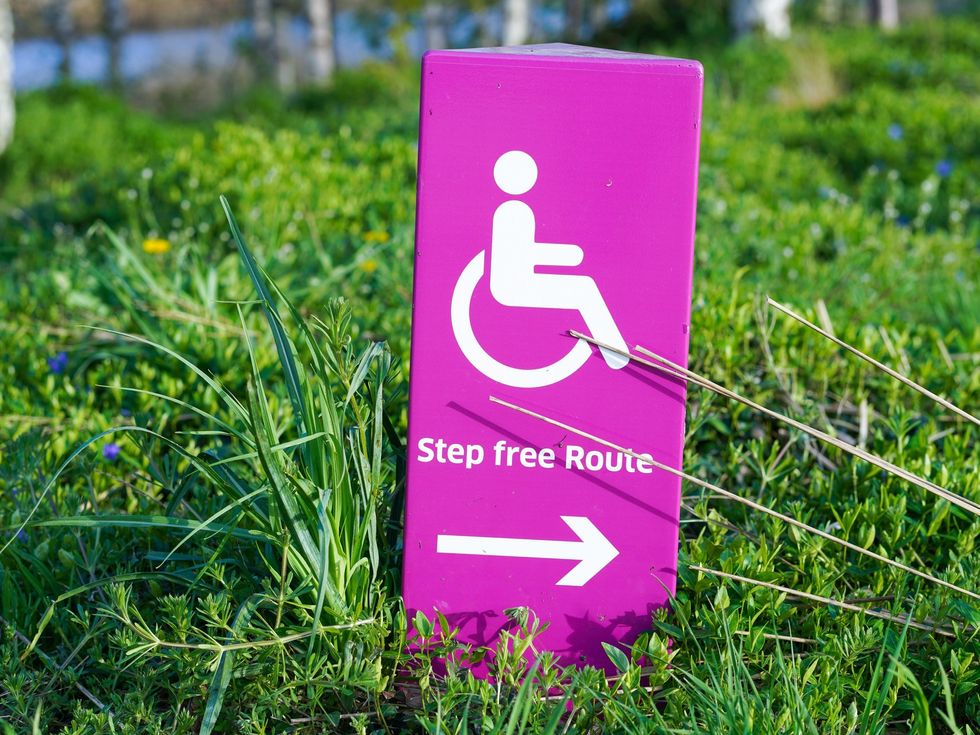Disclaimer: My perspective is only that of someone studying disability studies and a daughter of disabled parents. I do not speak for everyone in the community.
I currently go to Miami University in Oxford, OH. We have a wonderful disability studies program that has opened my eyes to the issues that the city of Oxford and the world faces in making public spaces accessible. When I say accessible I mostly mean physically, yes, but we also talk about a concept called Universal Design often.
There are 7 principles that Universally Designed Spaces Focus on:
1. Equitable Use: Can be used with a wide range of abilities.
2. Flexibility in Use: Depending on user needs, things can be moved or reformed.
3. Simple and Intuitive Use: Easy to use with little to no thought.
4. Perceptible Information: Easy to understand with little to no thought.
5. Tolerance for Error: Reduces possible harm to users.
6. Low Physical Effort: Physically easy to manipulate and use.
7. Size and Space for Approach and Use: Large enough, high enough, or short enough for use for people with many different abilities.
Each of these principles is crucial in creating spaces that are designed for all people, not just some. Not only do you need to consider how accessible is it for people with physical disabilities, but how accessible is it for those with sensory issues, vision or hearing loss, or any other range of abilities. Additionally, these principles are useful for all people: children, older adults, teens, EVERYONE.
From my personal experience, Oxford is NOT accessible, though they often claim some amount of accessibility.
Last year I worked on a project where we assessed the age-friendliness of Oxford. Findings were, frankly, grim, but we all expected it. Since beginning disability studies, though, I have realized it's so much more than that. In a current class, we wanted to see how large Oxford's need for push-to-open door buttons is. Turns out, it's pretty big. In one of the most popular areas of the city, where there are many restaurants, bars, and local shopping areas, there is not ONE push button. This means that it is much harder for wheelchair users to be able to get into a business with no assistance.
So, we set out to find ways to have at least one location uptown get a push button. We contacted businesses, to no avail. We did the research and were ready to discuss the financial difficulties the businesses might face when trying to install one, but we couldn't even get a foot in the door.
We realized, maybe this was a jump. Maybe, it was too ambitious. Maybe, we needed to start broader and then eventually focus in on one problem.
So, instead, we decided to determine how universally designed (and therefore, accessible) these businesses were.
For many, the results weren't surprising. You could get in the front door (with assistance) but once patrons get in there is a whole slew of issues they might face. Bright lights, high tables, and inaccessible bathrooms were only the beginning.
The most disappointing find, though, was from the businesses that had a universal symbol for "accessible" on the front door.
We found that most of these businesses were doing the bare minimum. They still faced all the common problems other businesses have, and some of them had even more issues.
As new students in disability studies, we recognized that maybe the owners think that what they have is all they need. So, instead of our initial plan, we decided to educate them about the 7 principles of universal design and how to implement changes to fit within these principles. We suggested to lower tables, paint walls a color that is not white and make seating arrangements more flexible, among many other things.
Our project is not yet complete, but we hope by educating businesses and policymakers in Oxford what we tried to do this semester will be more easily attainable for students in the future.
Keeping public places accessible to everyone is so important. With the 7 principles, changes made won't be to "help people with disabilities" but to help everyone. Oxford has a long way to go but with a little education and a whole lot of action, we know that Oxford (and the world) can be improved.









































